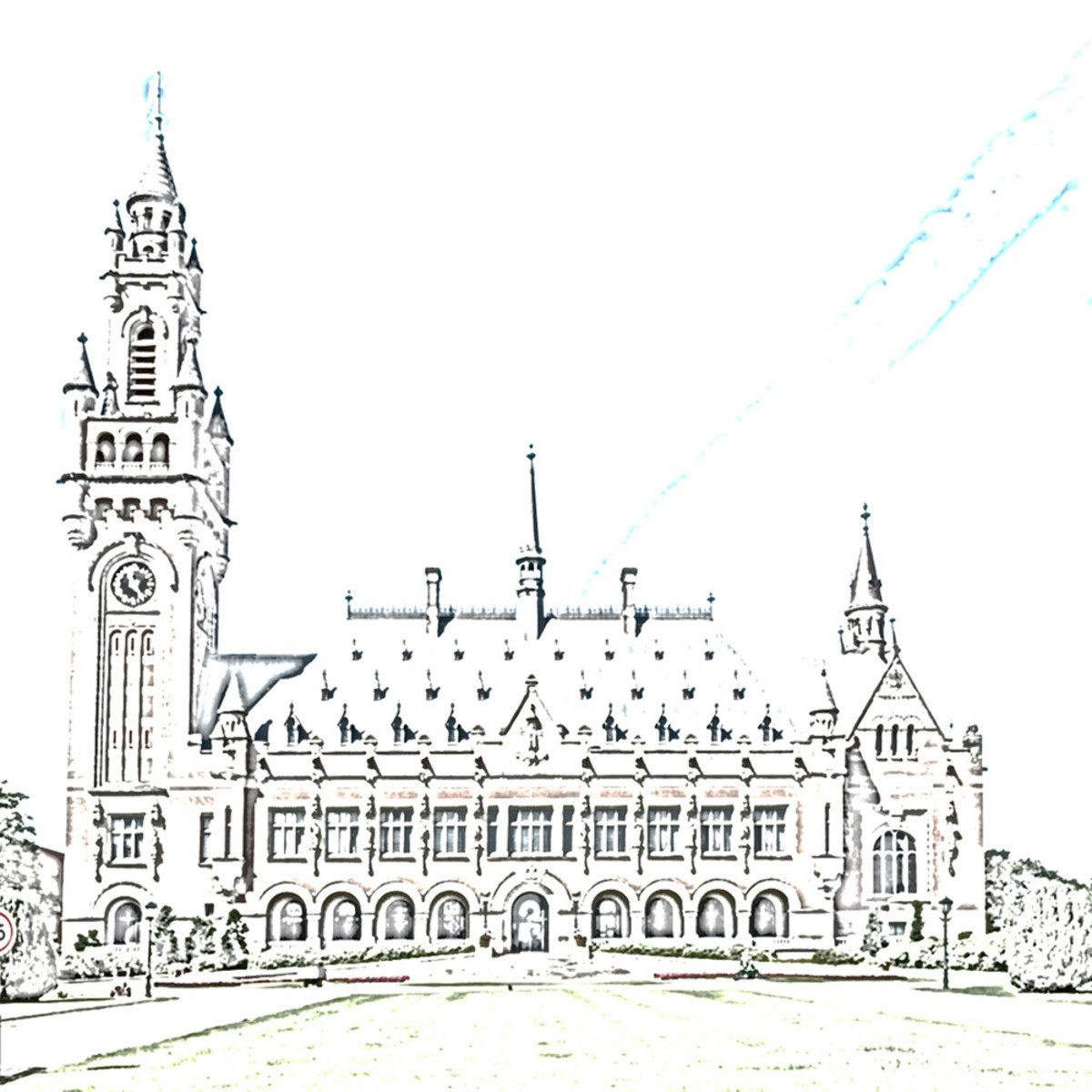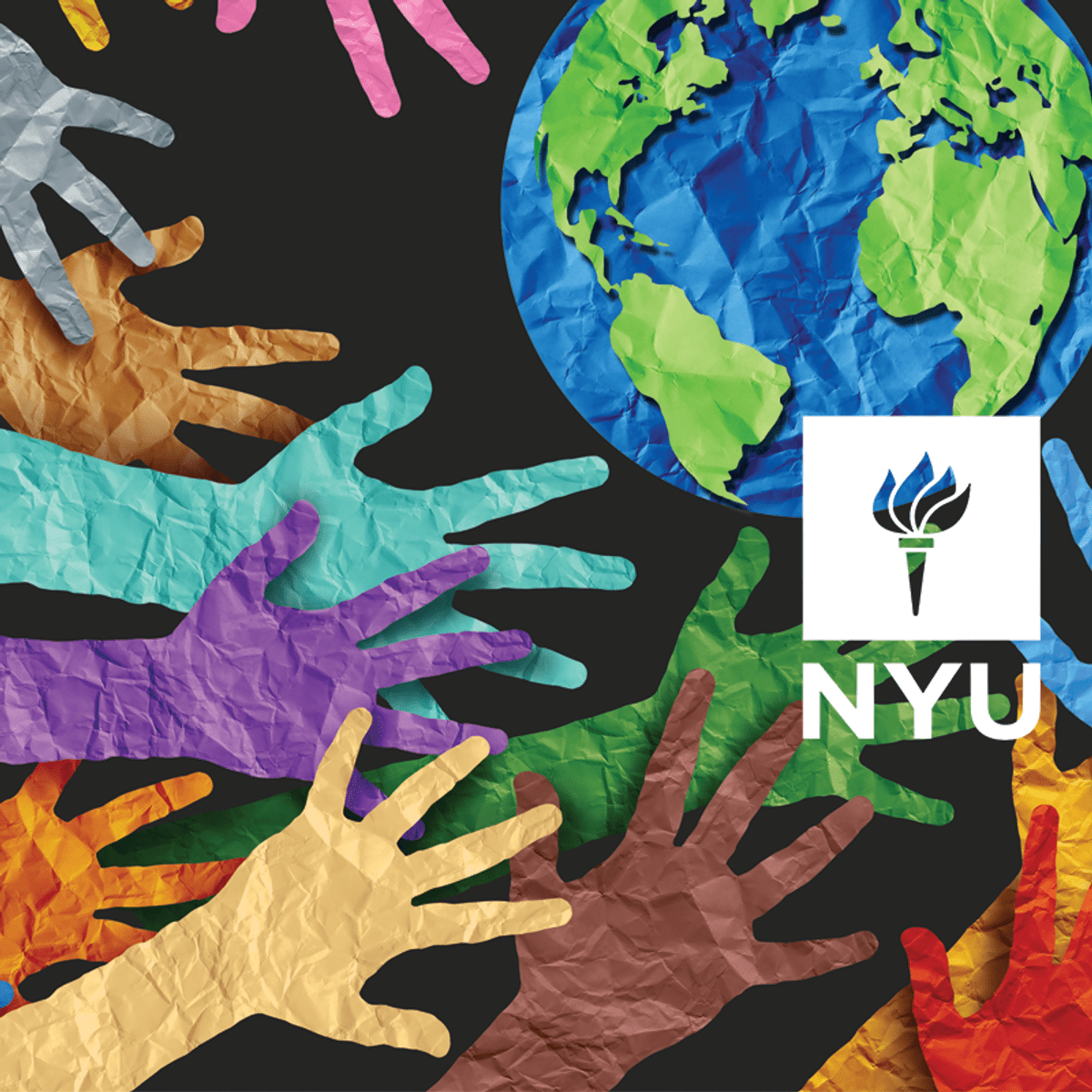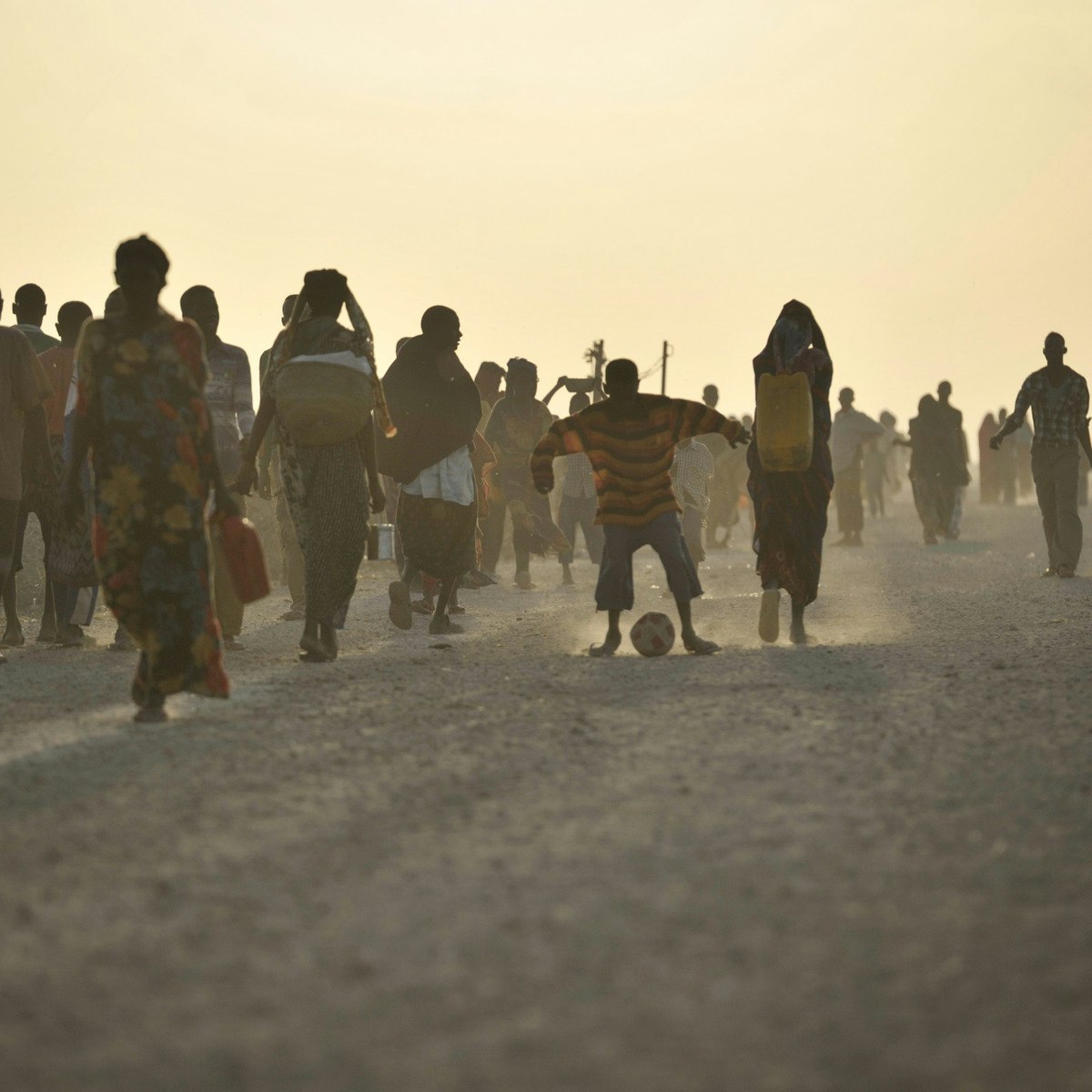Human Rights Officer
Embarking on a Career as a Human Rights Officer
A Human Rights Officer works at the forefront of safeguarding fundamental human rights and freedoms. They dedicate their efforts to monitoring, investigating, reporting on, and advocating against violations of these rights, striving to ensure dignity and justice for all individuals, regardless of their background or circumstances. This role is pivotal in upholding the principles enshrined in international declarations and treaties.
Working as a Human Rights Officer can be deeply rewarding, offering the chance to make a tangible difference in people's lives and contribute to systemic change. The field involves engaging with diverse cultures, tackling complex global issues, and collaborating with a wide array of actors, from grassroots activists to high-level diplomats. It demands intellectual rigor, emotional resilience, and a steadfast commitment to ethical principles.
Introduction to Human Rights Officer
Understanding the role of a Human Rights Officer begins with recognizing the universal nature of human rights. These professionals are dedicated advocates and investigators working to protect and promote rights related to life, liberty, equality, and dignity. Their core purpose is to identify, document, and address human rights abuses through various means, including research, reporting, policy influence, and direct intervention where possible.
The profession builds upon a long history of human rights advocacy, evolving significantly after World War II with the establishment of the United Nations and the adoption of the Universal Declaration of Human Rights. This historical context underscores the global commitment, albeit often challenged, to protecting individuals from state and non-state actor abuses. The field draws from law, political science, sociology, and international relations.
Human Rights Officers operate across various sectors globally. They are essential personnel in non-governmental organizations (NGOs) like Amnesty International or Human Rights Watch, intergovernmental organizations such as the United Nations and its various agencies (e.g., OHCHR, UNHCR), regional bodies like the European Union or the African Union, and within governmental departments focused on foreign affairs or justice. Their work adapts to the specific mandate and context of their employing organization.
These books provide a foundational understanding of the principles and international frameworks governing human rights work.
Key Responsibilities of a Human Rights Officer
Monitoring and Reporting Violations
A primary function of a Human Rights Officer involves the systematic monitoring of human rights situations in specific countries or thematic areas. This includes gathering information from various sources, such as victims, witnesses, local activists, media reports, and government documents. Accuracy, impartiality, and confidentiality are paramount in this process.
Following monitoring and verification, officers compile detailed reports documenting alleged violations. These reports often serve as crucial evidence for advocacy efforts, legal proceedings, or policy recommendations. They must be meticulously researched, clearly written, and ethically sound, often adhering to specific organizational guidelines and international standards.
The findings from monitoring activities inform strategies for intervention and prevention. This can involve raising awareness, alerting relevant international bodies, or providing data for early warning systems aimed at preventing future abuses. The cyclical nature of monitoring, reporting, and follow-up is central to the role.
Advocacy and Policy Influence
Human Rights Officers frequently engage in advocacy to promote human rights protections and address violations. This can range from lobbying government officials and policymakers to launching public campaigns aimed at raising awareness and mobilizing support. Effective advocacy requires strong communication skills and strategic planning.
Developing policy recommendations is another key aspect. Based on their research and findings, officers propose changes to laws, policies, or practices that fail to meet human rights standards. This involves understanding legal frameworks, political contexts, and the potential impact of proposed changes.
Advocacy often requires building coalitions with other organizations, community groups, and international partners. Collaborative efforts can amplify messages, pool resources, and increase the likelihood of achieving desired outcomes. Navigating these partnerships requires diplomacy and negotiation skills.
Collaboration and Engagement
Effective human rights work necessitates collaboration with a wide range of stakeholders. Officers interact regularly with local communities affected by human rights issues, ensuring their voices and perspectives are central to the work. Building trust and rapport is essential for meaningful engagement.
Working with government authorities is often necessary, whether to seek information, advocate for policy changes, or request accountability for violations. This relationship can be complex and requires careful navigation, balancing cooperation with the need to maintain independence and critique when necessary.
Collaboration extends to international organizations, other NGOs, and regional bodies. Sharing information, coordinating strategies, and participating in joint initiatives are common practices. This international dimension is crucial for addressing transboundary issues and leveraging global human rights mechanisms.
Legal Compliance and Conflict Resolution
While not always lawyers, Human Rights Officers need a strong understanding of relevant legal frameworks, including international human rights law, humanitarian law, and domestic legislation. They may work alongside legal teams to ensure activities comply with legal standards and contribute to accountability efforts.
These courses offer introductions to international law, which forms the bedrock of much human rights work.
In certain contexts, officers might be involved in or support conflict resolution processes. This could involve facilitating dialogue between conflicting parties, documenting rights violations relevant to peace negotiations, or advising on transitional justice mechanisms like truth commissions or reparations programs.
Ensuring that internal organizational practices align with human rights principles is also part of the role, particularly regarding data protection, ethical research conduct, and the safety and security of staff and contacts. This internal compliance aspect maintains the integrity of the organization's mission.
Understanding concepts like truth commissions is vital in post-conflict settings.
Essential Skills and Qualifications
Core Competencies
Success as a Human Rights Officer hinges on a blend of analytical, interpersonal, and practical skills. Strong research and analytical abilities are essential for investigating complex situations and interpreting data. Excellent written and verbal communication skills are needed for drafting reports, advocacy materials, and engaging with diverse audiences.
Cross-cultural communication and sensitivity are critical, especially in international settings or when working with marginalized communities. Negotiation and mediation skills can be invaluable for resolving conflicts or navigating sensitive political landscapes. Resilience, adaptability, and the ability to manage stress are crucial due to the often challenging and emotionally taxing nature of the work.
A solid understanding of legal principles, particularly international human rights law, is fundamental. While a law degree isn't always mandatory, legal literacy is expected. Project management skills also prove useful for planning and executing campaigns or field missions.
Language Proficiency
For roles involving international work or engagement with specific regions, proficiency in multiple languages is often a significant asset, and sometimes a requirement. English and French are common working languages in many international organizations like the UN. Spanish, Arabic, Russian, and Chinese are also highly valued official UN languages.
Beyond the official languages of major international bodies, proficiency in local languages relevant to the area of focus can be indispensable for fieldwork, enabling direct communication with affected populations and local partners. This deepens understanding and builds trust more effectively.
Language skills enhance competitiveness for positions, particularly those based in the field or requiring direct interaction with diverse linguistic groups. Continuous language learning can be a valuable part of professional development in this career.
Certifications and Specialized Training
While formal degrees provide a foundation, specialized certifications or training courses can enhance qualifications. Certificates in areas like international human rights law, monitoring and evaluation, project management for NGOs, conflict resolution, or gender mainstreaming can be beneficial.
Many universities and specialized institutes offer short courses or summer programs focused on specific human rights topics. Online platforms also provide accessible options for acquiring targeted knowledge and skills relevant to the field, covering areas from digital security to advocacy techniques.
OpenCourser features a range of courses that can help build specialized knowledge in areas relevant to human rights work, such as sustainable development or global diplomacy.
Practical training in areas like first aid, security management in hostile environments, or digital security protocols is often required or highly recommended for fieldwork positions, ensuring officers are prepared for potential risks.
Fieldwork Experience and Adaptability
Practical experience, particularly fieldwork, is highly valued in the human rights sector. Internships, volunteer positions, or entry-level roles that involve direct engagement with human rights issues on the ground provide invaluable skills and insights that academic study alone cannot replicate.
Fieldwork often requires high levels of adaptability and resilience. Officers may work in challenging environments with limited resources, face security risks, or encounter distressing situations. The ability to adjust to changing circumstances and maintain well-being is crucial.
Employers often look for candidates who demonstrate an ability to work effectively under pressure, navigate complex social and political dynamics, and operate independently while adhering to ethical guidelines. Documenting fieldwork experience clearly on resumes and during interviews is important.
Formal Education Pathways
Relevant Undergraduate Degrees
A bachelor's degree is typically the minimum educational requirement for entry-level positions in the human rights field. Relevant fields of study include International Relations, Political Science, Law, Sociology, Anthropology, and Journalism. These programs provide foundational knowledge about global affairs, legal systems, social structures, and research methodologies.
Coursework in international law, human rights principles, comparative politics, and regional studies is particularly beneficial. Developing strong writing, research, and critical thinking skills during undergraduate studies is essential preparation for the demands of the profession.
Combining a relevant major with minors or coursework in languages, statistics, or specific thematic areas like gender studies or environmental science can strengthen a candidate's profile. Extracurricular activities related to human rights advocacy or volunteering also demonstrate commitment.
Graduate and Advanced Studies
For many mid-level and specialized roles, particularly in policy, research, or international organizations, a master's degree or other advanced qualification is often preferred or required. Programs specifically focused on Human Rights, International Law, Humanitarian Affairs, Development Studies, or Public Policy are highly relevant.
Graduate programs offer opportunities for specialization in areas such as transitional justice, refugee and migration studies, gender and human rights, or children's rights. These programs deepen theoretical understanding and refine analytical skills, often incorporating practical components like internships or research projects.
These courses delve into specific areas often covered in graduate studies, like migration, gender, or specific legal frameworks.
A Ph.D. may be necessary for academic positions or high-level research roles within think tanks or specialized UN bodies. Research areas can be diverse, reflecting the breadth of the human rights field, including topics like the impact of climate change on human rights or the effectiveness of international tribunals.
Internships and Practical Experience
Gaining practical experience through internships during or after academic studies is critically important for breaking into the competitive human rights field. Many NGOs, international organizations, and government agencies offer internship programs, though some may be unpaid.
Internships provide exposure to the day-to-day realities of human rights work, allow students to apply academic knowledge, and help build professional networks. Securing internships often requires proactive searching and application well in advance.
University career services and academic departments specializing in international relations or law often have partnerships or connections with organizations offering relevant internships. Leveraging these resources can be highly beneficial for students seeking practical experience.
Online and Independent Learning
Prioritizing Learning Topics
Online learning offers flexible pathways to acquire or deepen knowledge in specific human rights areas. Key topics to prioritize include international human rights law, humanitarian law, specific regional contexts, monitoring and documentation techniques, advocacy strategies, project management, and digital security.
Learners can use online courses to fill knowledge gaps left by formal education or to specialize in emerging areas like technology and human rights, business and human rights, or climate justice. Focusing on courses offered by reputable universities or organizations enhances credibility.
Understanding philosophical underpinnings and historical context provides depth. Courses exploring different theoretical perspectives or the evolution of human rights discourse can enrich one's understanding beyond purely legal or practical aspects.
Integrating Online Learning with Experience
While online courses provide valuable knowledge, they cannot fully replace hands-on experience, especially for roles involving fieldwork or direct advocacy. The most effective approach often involves balancing structured online learning with volunteering, internships, or entry-level work that provides practical application.
Online education can be particularly useful for professionals already working in related fields (e.g., social work, law, journalism) who wish to pivot towards or incorporate a human rights focus into their work. It allows for upskilling without necessarily requiring a full return to formal, full-time education.
Learners should actively seek opportunities to apply concepts learned online. This could involve volunteering for a local human rights group, conducting independent research projects related to course topics, or incorporating new knowledge into their current professional responsibilities if applicable. The OpenCourser Learner's Guide offers tips on maximizing the value of online study.
Digital Tools and Virtual Collaboration
The human rights field increasingly utilizes digital tools for research, monitoring, advocacy, and communication. Online courses can introduce learners to tools for data analysis, geographic information systems (GIS) mapping, secure communication, and digital evidence verification.
Understanding digital security practices is crucial for protecting sensitive information and safeguarding oneself and contacts, especially when working on contentious issues or in restrictive environments. Specialized online modules often cover topics like encryption, secure browsing, and recognizing phishing attempts.
Remote collaboration tools have become essential, particularly for international teams. Proficiency in using platforms for virtual meetings, shared document editing, and project management facilitates effective teamwork across distances, a skill readily honed through participation in online courses involving group work.
Building Portfolios through Projects
Completing online courses can provide opportunities to build a portfolio showcasing relevant skills and knowledge. Many courses include assignments or capstone projects that can be adapted or expanded into portfolio pieces, such as research papers, policy briefs, or advocacy campaign proposals.
Self-initiated projects, inspired by online coursework, can also demonstrate initiative and expertise. This could involve conducting research on a local human rights issue, creating informational materials, or analyzing publicly available data related to human rights trends.
Clearly documenting projects, including methodologies used and skills demonstrated, helps potential employers assess practical capabilities beyond academic credentials. Linking projects to specific competencies required for Human Rights Officer roles strengthens their impact.
Career Progression and Entry Points
Starting Your Career
Entry into the human rights field is often competitive. Common starting points include internships (paid or unpaid), volunteer positions, research assistant roles, or administrative support positions within human rights organizations. These roles provide essential exposure and foundational experience.
Field coordinator or project assistant roles, often based locally or regionally, offer direct experience in program implementation and community engagement. These positions may require specific language skills and a willingness to work in challenging environments but provide invaluable hands-on learning.
Networking plays a significant role. Attending conferences, joining professional associations, and connecting with individuals working in the field can uncover opportunities and provide mentorship. Informational interviews can offer insights into different organizational cultures and career paths.
Mid-Career Development and Transitions
With experience, Human Rights Officers can specialize in thematic areas (e.g., women's rights, refugee rights, corporate accountability) or geographic regions. Mid-career roles often involve greater responsibility, such as managing projects, leading research initiatives, or developing advocacy strategies.
Transitions are common. An officer might move from fieldwork to a headquarters-based policy role, or a legal advisor might shift into program management. Developing expertise in areas like monitoring and evaluation, fundraising, or communications can open up diverse career pathways.
Continuing professional development, including advanced degrees or specialized training, can facilitate career advancement. Building a track record of impactful work, successful project completion, and effective collaboration is key to progressing to more senior positions.
Leadership Trajectories
Senior leadership roles in the human rights field include positions like Program Director, Regional Director, Head of Advocacy, or Executive Director of an NGO. These roles typically require extensive experience, proven leadership capabilities, strategic vision, and often, fundraising expertise.
Within large international organizations like the United Nations, leadership paths can lead to roles such as team leaders, section chiefs, or even high-profile positions like Special Rapporteurs or members of treaty bodies. These positions often involve significant diplomatic and policy-making responsibilities.
Leadership requires not only substantive expertise but also strong management skills, the ability to navigate complex organizational politics, and a commitment to fostering an ethical and effective work environment. Mentoring junior staff often becomes an important part of senior roles.
Lateral Moves and Related Fields
The skills and experience gained as a Human Rights Officer are transferable to various related fields. Lateral moves might include transitioning into roles in diplomacy, international development, humanitarian aid, corporate social responsibility, or academia.
For example, expertise in monitoring and evaluation could lead to roles across the non-profit sector. Experience in advocacy and policy analysis is valuable in government relations or public affairs. Understanding international law can open doors in international organizations focused on different mandates.
These transitions often leverage the core competencies developed in human rights work, such as cross-cultural communication, analytical skills, ethical reasoning, and navigating complex political environments. Framing experience effectively is key when exploring related career paths.
Ethical Challenges in Human Rights Work
Navigating Neutrality and Advocacy
Human Rights Officers often face the challenge of balancing the principle of impartiality or neutrality with the imperative to advocate for victims and condemn violations. This is particularly complex in conflict zones or highly politicized environments where taking a stance can have security implications or affect access.
Maintaining objectivity in reporting while clearly articulating the human rights implications of actions requires careful judgment. Organizations have different mandates and approaches regarding neutrality, influencing how officers navigate this tension.
Decisions about when and how to speak out, who to engage with, and what information to release involve complex ethical calculations. The primary consideration is often the potential impact on the affected population and the safety of sources and staff.
Burnout and Psychological Toll
Exposure to trauma, whether direct or vicarious through listening to harrowing testimonies, is a significant occupational hazard for Human Rights Officers. The emotional weight of dealing with severe human suffering can lead to burnout, compassion fatigue, and other mental health challenges.
Working under high pressure, facing security risks, and dealing with bureaucratic frustrations can exacerbate stress. Organizations increasingly recognize the need for robust staff care policies, including access to psychosocial support, but resources may be limited, especially in smaller NGOs or field posts.
Self-care strategies, peer support networks, and maintaining boundaries between work and personal life are crucial for long-term sustainability in this demanding field. Recognizing the signs of burnout and seeking support proactively is essential for personal well-being and professional effectiveness.
Political Sensitivities and Security Risks
Human rights work often challenges powerful interests and entrenched systems, leading to political pressure, censorship, or direct threats against officers and their organizations. Navigating these sensitivities requires diplomatic skill, careful risk assessment, and strong security protocols.
Working in authoritarian states or conflict zones presents particular risks, including surveillance, harassment, detention, or expulsion. Protecting sources and ensuring the confidentiality of sensitive information is paramount and requires adherence to strict security procedures, including digital security.
Decisions about fieldwork, publications, and advocacy must carefully weigh the potential impact against the security risks involved. This constant risk assessment is an inherent part of the job, particularly for those working close to volatile situations.
This book explores the specific challenge of torture, a severe violation often encountered.
Human Rights Officer Job Market Trends
Demand Drivers and Shifts
Demand for Human Rights Officers is influenced by global events. Geopolitical conflicts, refugee crises, democratic backsliding in some regions, and the human rights implications of climate change often increase the need for monitoring, advocacy, and protection work.
Conversely, political shifts towards nationalism or isolationism in donor countries can impact funding for international human rights initiatives. The operating space for civil society, including human rights organizations, is shrinking in some parts of the world, affecting job opportunities and operational freedom.
The focus of human rights work evolves. Issues like digital rights, the impact of artificial intelligence, corporate accountability, and the rights of climate refugees are gaining prominence, creating demand for specialized expertise in these areas.
Impact of Digital Activism and Technology
The rise of digital activism and citizen journalism presents both opportunities and challenges. While technology facilitates rapid information dissemination and mobilization, it also increases the spread of misinformation and requires new skills for verifying digital evidence.
Human Rights Officers increasingly need digital literacy, including skills in analyzing satellite imagery, verifying user-generated content, understanding cybersecurity threats, and utilizing online platforms for advocacy while managing associated risks.
Technology is also being used to perpetrate or enable human rights abuses (e.g., surveillance, online censorship), creating new areas of focus for monitoring and advocacy. Expertise in the intersection of technology and human rights is becoming increasingly valuable.
Funding and Sector Variability
The job market varies significantly between the NGO sector, intergovernmental organizations (IGOs), and government roles. IGOs like the UN often offer more structured career paths and potentially higher salaries but have highly competitive recruitment processes, often requiring advanced degrees and specific language skills. Information can be found on portals like UN Careers.
NGOs range from large international organizations like Human Rights Watch to small, grassroots groups. Funding stability can be a challenge, particularly for organizations reliant on grants and donations. Roles may offer significant impact but potentially lower salaries and less job security than IGO positions.
Government roles related to human rights exist within foreign ministries, justice departments, or national human rights institutions. These positions are influenced by national political priorities and may focus more on policy implementation or diplomatic engagement.
Emerging Specializations
As the field evolves, new specializations are emerging. The intersection of technology and human rights, including issues of data privacy, algorithmic bias, and online freedom of expression, is a growing area.
Business and human rights is another expanding field, driven by initiatives like the UN Guiding Principles on Business and Human Rights and increasing demands for corporate accountability regarding supply chains and environmental impact.
Climate justice, focusing on the disproportionate impact of climate change on vulnerable populations and advocating for rights-based climate action, is also gaining traction. Expertise combining environmental science or policy with human rights principles is increasingly sought after.
Frequently Asked Questions
Is a law degree mandatory?
No, a law degree is not strictly mandatory to become a Human Rights Officer, although it is highly relevant and common in the field. Many successful officers have backgrounds in international relations, political science, sociology, journalism, or other social sciences. However, a strong understanding of legal principles, particularly international human rights law, is essential for most roles.
For positions focused specifically on litigation, legal analysis, or advising on legal compliance, a law degree and potentially bar admission will likely be required. For roles centered on research, advocacy, program management, or fieldwork, other degrees combined with relevant experience and skills can be equally valuable.
Ultimately, the required qualifications depend on the specific role and organization. A combination of relevant academic background, practical experience (especially internships), language skills, and core competencies like research, writing, and cross-cultural communication is generally sought.
How does this role differ from a humanitarian aid worker?
While both roles often operate in similar contexts and aim to alleviate suffering, their primary focus differs. Humanitarian aid workers typically concentrate on providing immediate relief – food, shelter, medical care – in response to crises like natural disasters or conflicts. Their mandate is generally focused on short-term survival needs.
Human Rights Officers, conversely, focus on the protection and promotion of fundamental rights. Their work involves monitoring violations, advocacy for policy changes, seeking accountability for abuses, and addressing the root causes of rights deprivations. While they may work alongside aid workers, their lens is legal and rights-based, often with a longer-term perspective on systemic change.
There can be overlap, particularly in areas like protection in conflict zones or advocating for the rights of displaced populations. Some organizations integrate both humanitarian and human rights approaches. However, the core methodologies, legal frameworks, and primary objectives generally distinguish the two fields.
What are the risks associated with fieldwork?
Fieldwork in human rights can involve significant risks, particularly when operating in conflict zones, authoritarian states, or areas with high levels of crime or instability. Physical security risks can include exposure to violence, accidents, or health hazards related to poor sanitation or infectious diseases.
Officers may face risks of harassment, intimidation, surveillance, arrest, detention, or expulsion by state or non-state actors hostile to human rights monitoring. Digital security risks, such as hacking or surveillance of communications, are also prevalent concerns.
Beyond physical and digital threats, there are significant psychological risks stemming from exposure to trauma, high stress levels, and moral injury. Organizations have a duty of care to mitigate these risks through security training, protocols, psychosocial support, and careful mission planning, but risks cannot always be entirely eliminated.
Can remote work replace on-ground presence?
While technology allows for some aspects of human rights work to be done remotely (e.g., desk research, report writing, online advocacy, data analysis), it generally cannot fully replace on-ground presence for certain core functions. Building trust with affected communities, conducting sensitive interviews, verifying information firsthand, and understanding local context often require direct, in-person engagement.
Remote work has become more common for certain roles, particularly those focused on policy analysis, communications, or supporting field teams from headquarters. Digital tools can facilitate remote monitoring to some extent (e.g., analyzing satellite imagery, monitoring social media).
However, for many roles involving investigation, documentation, and direct community engagement, fieldwork remains essential. The feasibility of remote work depends heavily on the specific responsibilities of the position and the context in which the work takes place. A hybrid approach, combining remote work with periodic field visits, is also utilized by some organizations.
How competitive are roles at international organizations?
Roles at major international organizations (IGOs) like the United Nations, the Organization for Security and Co-operation in Europe (OSCE), or regional bodies are typically highly competitive. These organizations attract a large pool of qualified applicants from around the world.
Competition is often particularly fierce for entry-level professional positions (like the UN's Young Professionals Programme or JPO positions) and for roles based in desirable headquarters locations like New York, Geneva, or Vienna. Successful candidates usually possess advanced degrees, relevant work experience (often including fieldwork), proficiency in multiple official languages, and strong competencies.
Understanding the specific recruitment processes (e.g., competency-based interviews, written tests) and tailoring applications carefully to match the job requirements are crucial. Networking and gaining prior experience through internships or consultancies within the target organization can sometimes provide an advantage.
This course provides insights into the UN system.
What languages are most valuable?
Proficiency in English is almost universally required for international human rights work. Beyond English, the value of other languages depends heavily on the geographic focus and the specific organization. French is widely used in many international organizations (including the UN, EU, AU) and is essential for work in many parts of Africa and some international tribunals.
Spanish is crucial for work in Latin America. Arabic is vital for the Middle East and North Africa. Russian is important for Eastern Europe and Central Asia. Chinese is increasingly relevant due to China's global role. These are all official UN languages and highly sought after.
Knowledge of other regional or local languages relevant to specific areas of operation (e.g., Swahili in East Africa, Portuguese in Brazil or Lusophone Africa, Hindi/Urdu in South Asia) can be a significant advantage, particularly for fieldwork roles requiring direct community engagement. The more languages relevant to human rights contexts you command, the more opportunities may become available.
Embarking on a career as a Human Rights Officer is a path that demands dedication, resilience, and a deep commitment to justice. While challenging, it offers the profound opportunity to contribute to protecting human dignity and advocating for a more equitable world. Continuous learning, adaptability, and ethical reflection are essential companions on this journey.


















